Exploring the Moral Dilemmas in War-Themed Games
16 December 2024
Let’s be honest—war-themed games are the popcorn flicks of the gaming world. Explosions, bullets flying, dramatic cutscenes with a brooding protagonist, and let’s not forget the token helicopter crash. They’re awesome! But beneath all the cinematic eye candy and adrenaline-soaked gameplay lies something far more complicated: morality.
Yes, folks, video games don’t just have pretty graphics and cool guns anymore (though we love those, too). These games are also trying—sometimes subtly, sometimes with all the subtlety of a grenade—to make us question our actions and the ethical consequences of war.
So, strap on your virtual Kevlar, grab your controller (or keyboard, no judgment here), and let’s take a sarcastic yet eye-opening journey through the moral minefields of war-themed games. 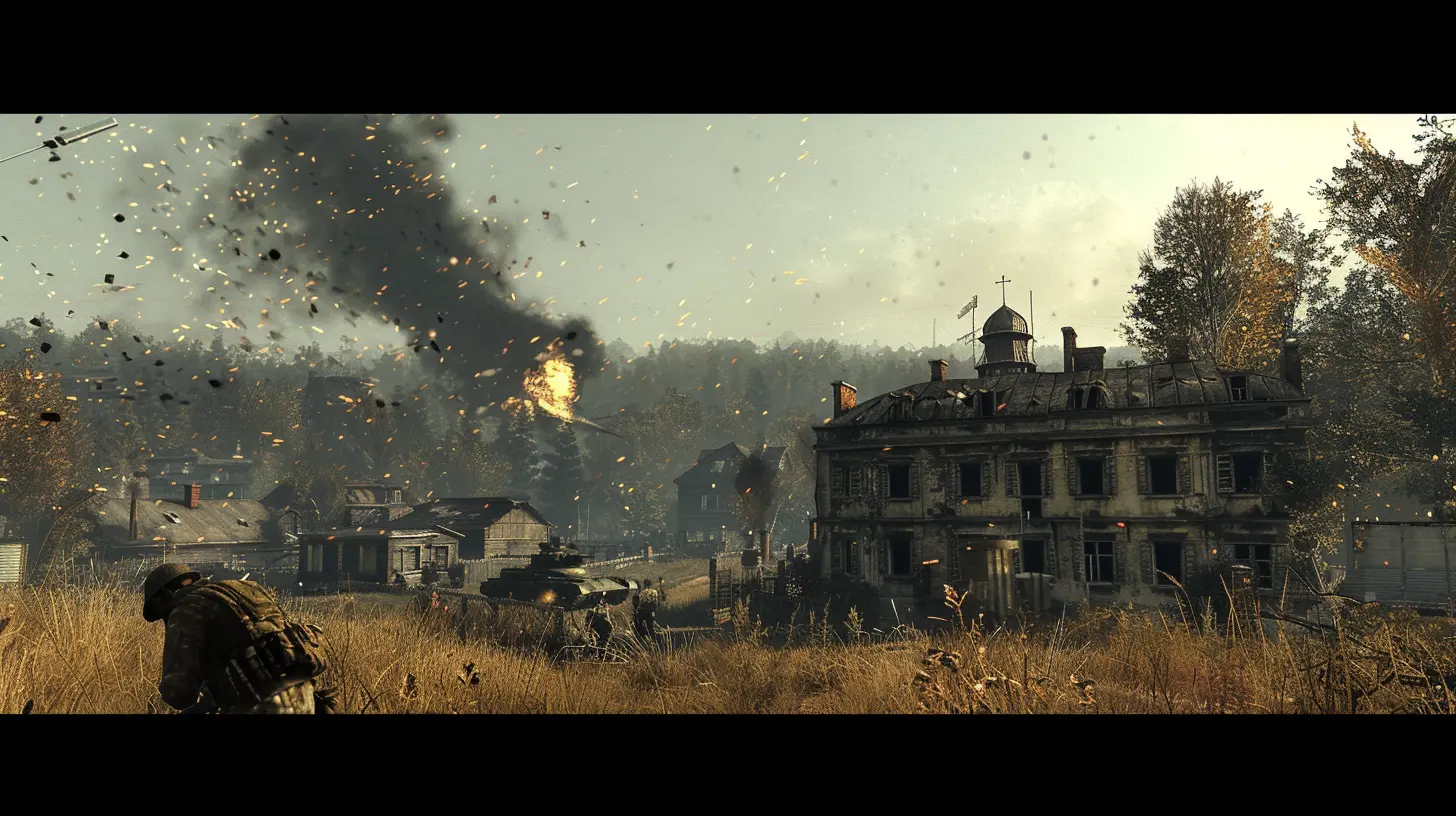
Why Do War Games Even Need Morality?
Before we dive in, let’s address the elephant in the room. Why are game developers suddenly feeling like they have to add layers of moral complexity to war games? Can’t a game just be about shooting the bad guys and saving the day?Well, as it turns out, the bad guys aren’t always that bad, and the good guys aren’t always wearing white hats. (Plot twist: They can actually be kind of awful sometimes.) Players have grown savvier, expecting more depth in the storytelling. Besides, war is inherently messy, morally gray, and, frankly, depressing. So, of course, it’s ripe for video game dramatics.
Plus, it’s not 2005 anymore. You can’t just slap a stereotypical “foreign terrorist” into your game and call it a day. People notice when you’re being lazy, and the internet will absolutely roast you for it. 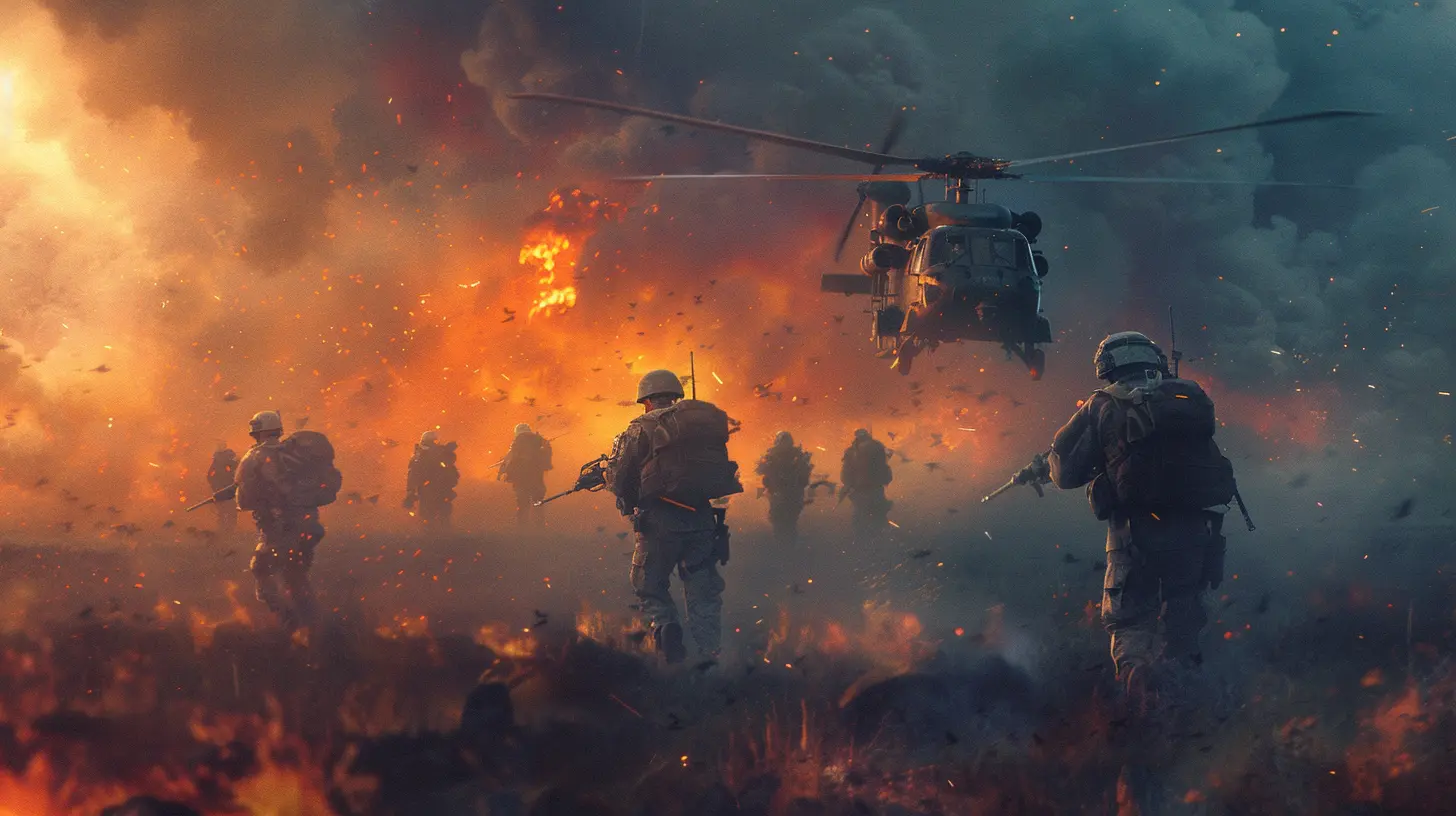
Moral Choice Systems: Decision-Making or Just Fancy Guilt Trips?
Ah, the classic “moral choice system.” You’ve seen it. You’ve been there. One screen pops up and asks, “Will you save these innocent civilians?” while another says, “Or, will you blow up an entire village to complete your mission faster?”Let me guess—you hover over the “evil” choice for a split second, chuckling nervously, and then pick the “good guy” option because you’re not a monster. Right? Well, congratulations, you’ve been manipulated.
In games like Spec Ops: The Line, Call of Duty: Modern Warfare, and Metal Gear Solid V, the choices aren’t as black-and-white as “good guy versus bad guy.” Heck, they’re more like “lesser evil versus absolute horror.” For example, Spec Ops: The Line famously slaps you in the face with one ethical dilemma after another until you start questioning why you even turned the game on in the first place.
And let’s not forget This War of Mine—a game that essentially asks, “Who will you let starve today?” It’s like The Sims, but instead of deciding who gets a new pool, you decide who gets medicine. Fun, right?
But are these moral choices actually meaningful, or are they just guilt trips? Some argue they’re there to make players “feel something.” Others think they’re just checkbox features designed to give the illusion of depth. Either way, games that force us to confront these dilemmas tend to linger in our minds—long after we’ve unplugged the controller. 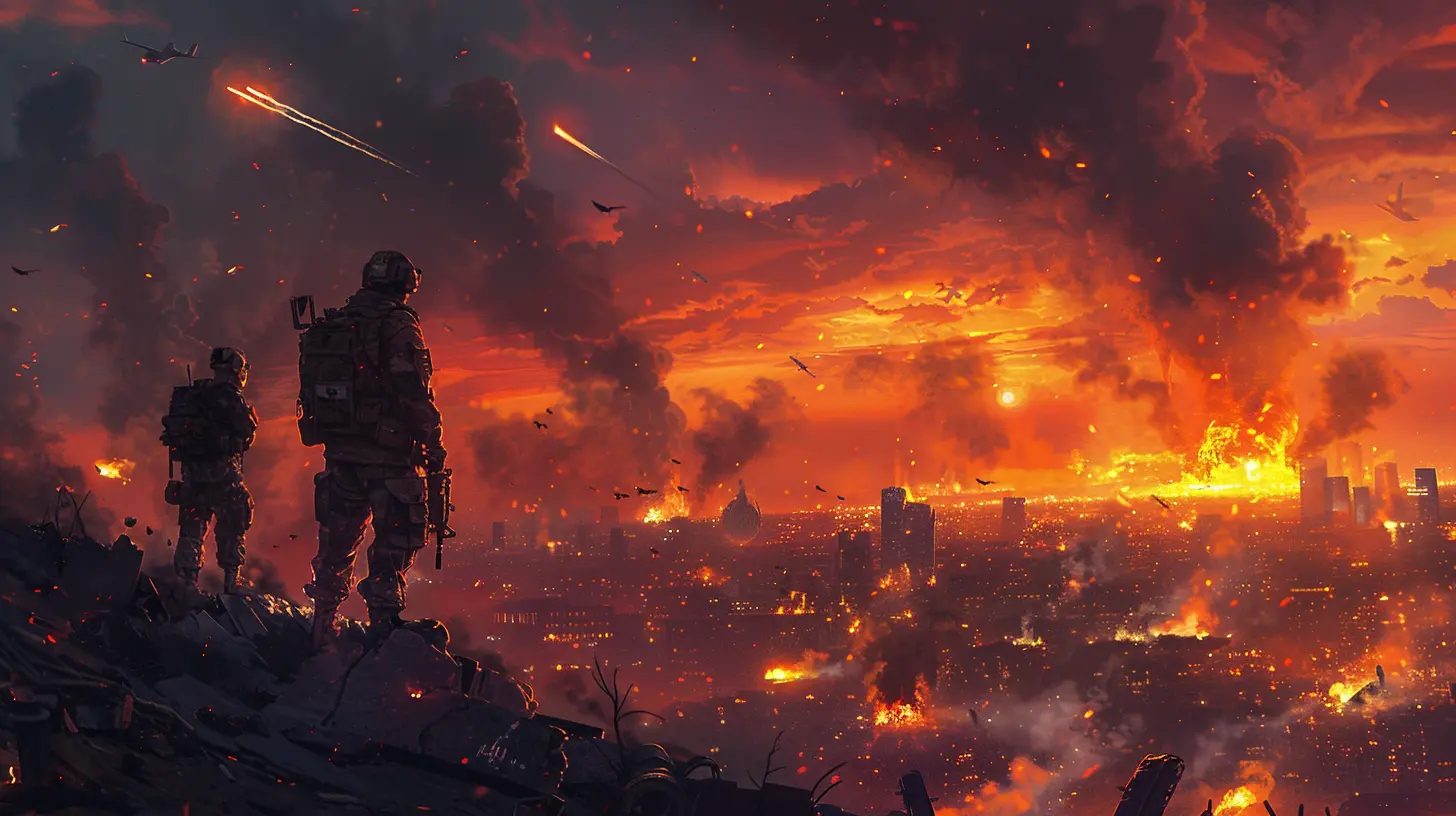
The Classic Trope: The “Greater Good” Justification
Ah, the timeless excuse for bad behavior: “We’re doing this for the greater good.” War-themed games love this trope like developers love microtransactions. You’re constantly told to “sacrifice a few for the many,” and honestly, sometimes it feels like you’re the “few” with a giant bullseye on your back.Take Call of Duty: Modern Warfare 2’s infamous “No Russian” mission. This gem of a level puts you in the shoes of an undercover agent participating in a terrorist attack. Why? Because apparently, slaughtering innocents is somehow necessary to gain the villain’s trust (and advance the plot).
Now, if that doesn’t make you squirm in your seat, I don’t know what will. And before you ask, no, you can’t skip the mission unless you turn off the game entirely. (Choice, who?)
War games seem to thrive on putting you in these morally sticky predicaments where you have no good option. It mirrors real-life warfare, sure—because let’s face it, war is one constant exercise in moral ambiguity—but it’s hard not to feel like a pawn in somebody else’s grand strategy. 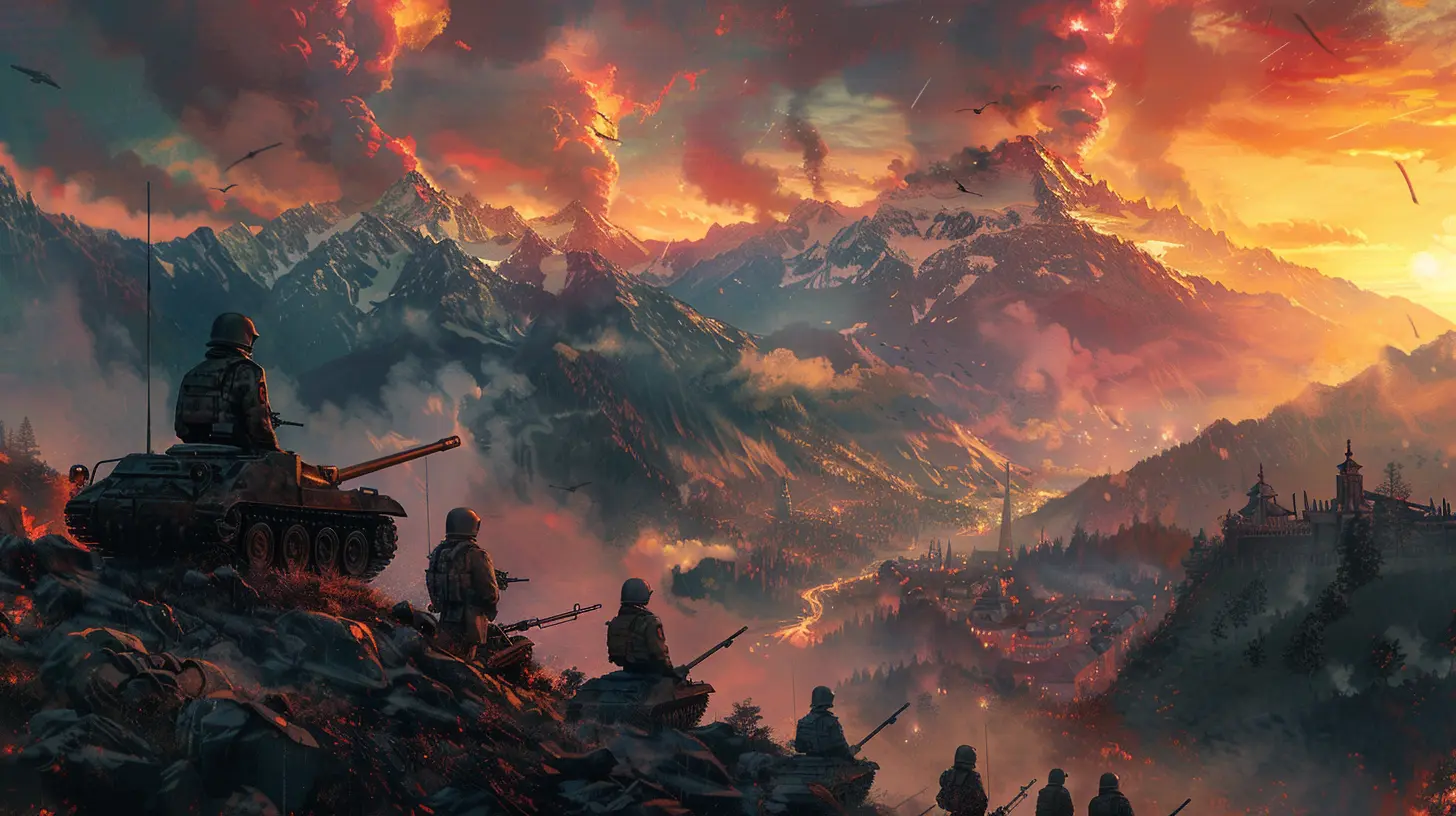
The Villains Aren’t Always the Real Villains
If war games have taught us anything, it’s that the real villains are rarely the trigger-happy lunatics waving rocket launchers. Oh no, those guys are just cannon fodder. The real villains are usually sitting in a boardroom, sipping overpriced coffee, and pulling the strings like modern-day Machiavellis.Take the Halo series, for example. At first glance, it’s all about aliens versus humans—the classic good versus evil shtick. But peel back the layers of the story, and you’ll find that humanity’s own leaders aren’t exactly saintly. They’ve committed atrocities, suppressed dissent, and turned their soldiers into expendable tools. So, who’s the real enemy here?
And then there’s Metal Gear Solid V: The Phantom Pain. Sure, there’s an over-the-top villain or two, but most of the game revolves around shady government agencies and morally bankrupt corporations. It’s like the game is screaming, “It’s not the soldiers who are evil—it’s the system, man!”
War Games as Mirrors to Society
Let’s get a little philosophical here. War games don’t just depict war—they reflect our own world. From the justification of collateral damage to the demonization of enemies, these games often echo the political and cultural narratives of their time.Take Battlefield V, which faced backlash for featuring a woman on the cover. Because, obviously, the real issue with war isn’t, you know, war—it’s women. (Insert eye-roll emoji here.) The outrage wasn’t just about historical accuracy; it also revealed the deep-seated biases that still exist in gaming culture.
Meanwhile, Spec Ops: The Line doesn’t shy away from showing how propaganda and dehumanization can turn ordinary people into monsters. It’s basically the gaming equivalent of a reality check: we might think we’re the good guys, but are we really?
Are We the Monsters?
Here’s the kicker: war-themed games often make us question our own morality. By forcing us to make brutal decisions, these games blur the line between player and character. Suddenly, you’re no longer just controlling someone else—you are them.Did you just bomb a building full of innocent people because your commander told you to? Did you “accidentally” shoot a civilian because they moved too fast? Did you choose to save yourself instead of a teammate because, well, you wanted that sweet endgame loot?
Congratulations, you’re officially complicit. Welcome to the morally murky waters of war games, where every decision feels like a lose-lose situation.
Are War Games Just Too Heavy?
At some point, you might wonder, “Why do I even play these games if they make me feel like garbage?” It’s a fair question. War-themed games often walk a tightrope between entertainment and existential despair.But maybe that’s the point. Maybe these games aren’t here just to entertain us—they’re here to make us think. About war. About morality. About the choices we make, both in and out of the game.
Or maybe game developers just like watching us squirm. Who knows?
Where Do We Go From Here?
As war-themed games continue to evolve, they’ll undoubtedly keep experimenting with moral dilemmas. Some players will love the depth and complexity, while others will long for the simpler days of “shoot first, ask questions never.”But if games can make us laugh, cry, and scream in frustration, why shouldn’t they also make us think? War games might not have all the answers, but they sure are good at asking the hard questions.
Just, you know, don’t expect to feel warm and fuzzy after playing one.
all images in this post were generated using AI tools
Category:
War GamesAuthor:

Leif Coleman
Discussion
rate this article
11 comments
Thornefield Taylor
Moral dilemmas in war games? Please. It's just pixelated chaos! Let’s focus on who’s winning, not on our feelings!
April 4, 2025 at 5:03 AM

Leif Coleman
While war games may seem like pixelated chaos, they can also reflect real ethical dilemmas that provoke thought and discussion about the consequences of violence and conflict. Engaging with these themes adds depth to the gaming experience.
Kismet Lane
Great article! It’s essential to explore how war-themed games challenge our morality, pushing us to reflect on our choices and consequences.
February 15, 2025 at 5:18 AM

Leif Coleman
Thank you! I'm glad you found it insightful. Exploring these moral dilemmas is vital for understanding the impact of our choices in both games and real life.
Raegan McInnes
War-themed games challenge our conscience: do we play to win, or win our humanity? It’s the ultimate moral battlefield.
February 1, 2025 at 3:59 AM

Leif Coleman
Thank you for your insightful comment! Indeed, war-themed games force us to confront profound ethical questions, balancing the thrill of competition with the impact on our humanity. It's a compelling reflection on the nature of choice in gaming.
Brianna McKay
War-themed games often challenge players to confront their ethical boundaries, blurring the lines between right and wrong. In these virtual battlegrounds, each choice reflects deeper societal values, prompting us to reflect on our own morals in the face of conflict.
January 23, 2025 at 3:38 PM

Leif Coleman
Absolutely, war-themed games serve as powerful tools for moral reflection, pushing players to navigate complex ethical landscapes and examine their own values in the context of conflict.
Aris Fields
Games highlight morality in conflict.
January 15, 2025 at 4:28 AM

Leif Coleman
Thank you for your comment! Indeed, games often serve as a powerful medium to explore and challenge our understanding of morality in the context of war.
George McFadden
Who knew virtual genocide had rules?
January 11, 2025 at 5:37 AM

Leif Coleman
Even in virtual spaces, ethical considerations are crucial. Games reflect the complexities of real-world morality.
Silas Fry
In the pixelated battlegrounds, choices weigh heavy, Each decision a shadow, where virtue may levy. As we wield our weapons, the lines blur and bend, In war's cruel embrace, do we lead or offend? Through play, we seek truth in the chaos we send.
January 6, 2025 at 4:11 AM

Leif Coleman
Thank you for your insightful comment! You've beautifully encapsulated the complex moral landscape that war-themed games navigate, highlighting how our choices reflect broader ethical questions in a digital battleground.
Zeke Lawson
This article offers a thought-provoking exploration of the moral complexities in war-themed games. It’s fascinating to see how these dilemmas challenge players to reflect on their values and decisions. I appreciate the insights shared here, as they highlight the deeper narrative layers that games can offer. Thank you for this perspective!
December 31, 2024 at 4:47 AM

Leif Coleman
Thank you for your thoughtful comment! I'm glad you found the exploration of moral dilemmas in war-themed games engaging and meaningful. Your appreciation for the deeper narrative layers is greatly valued!
Charlotte Parker
War-themed games serve as a microcosm for real-world ethical quandaries, challenging players to confront their values in the heat of conflict. They compel us to reflect on the nature of morality amidst chaos, blurring lines between right and wrong, and ultimately redefining our understanding of heroism and sacrifice.
December 24, 2024 at 6:07 AM

Leif Coleman
Thank you for your insightful comment! I completely agree that war-themed games provide a unique platform for examining complex moral issues, pushing players to navigate the grey areas of ethics in conflict.
Selkie Jimenez
What a fantastic exploration of the thought-provoking moral dilemmas in war-themed games! 🎮✨ It's fascinating how these narratives challenge players to think critically and reflect on their choices. Can't wait to dive into these games and see how they shape our perspectives! Keep up the great work! 🌟
December 19, 2024 at 3:49 PM

Leif Coleman
Thank you for your thoughtful comment! I'm glad you’re excited to explore these narratives and their impact on player perspectives. Happy gaming! 🌟
Elijah Sheppard
This article insightfully examines how war-themed games confront players with complex moral decisions, enhancing engagement and prompting reflection on real-world ethics and consequences.
December 16, 2024 at 4:33 PM

Leif Coleman
Thank you! I'm glad you found the article insightful. Engaging with these moral dilemmas is crucial for understanding the broader implications of our choices, both in games and in real life.
MORE POSTS

Crafting the Perfect Mod Load Order for Smooth Gameplay

Virtual Reality Gaming: From Science Fiction to Reality
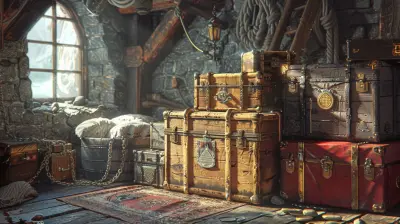
How to Build the Perfect Inventory in Adventure Games

Silent Communication: Games That Challenge Teams Without Words

Choosing Your Role: How Team Composition Impacts Cooperative Success

The Changing Face of the “Best Game” Category at Major Awards

Unreal Engine Games That Blend Art and Interactivity

Rediscovering Past Game Award Winners You May Have Missed